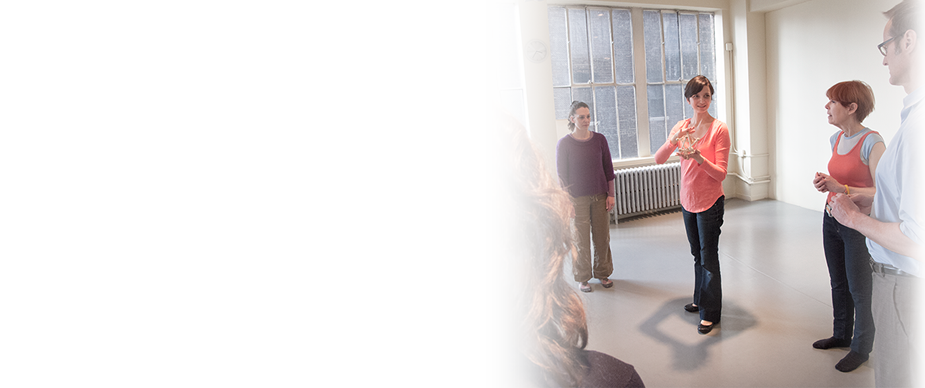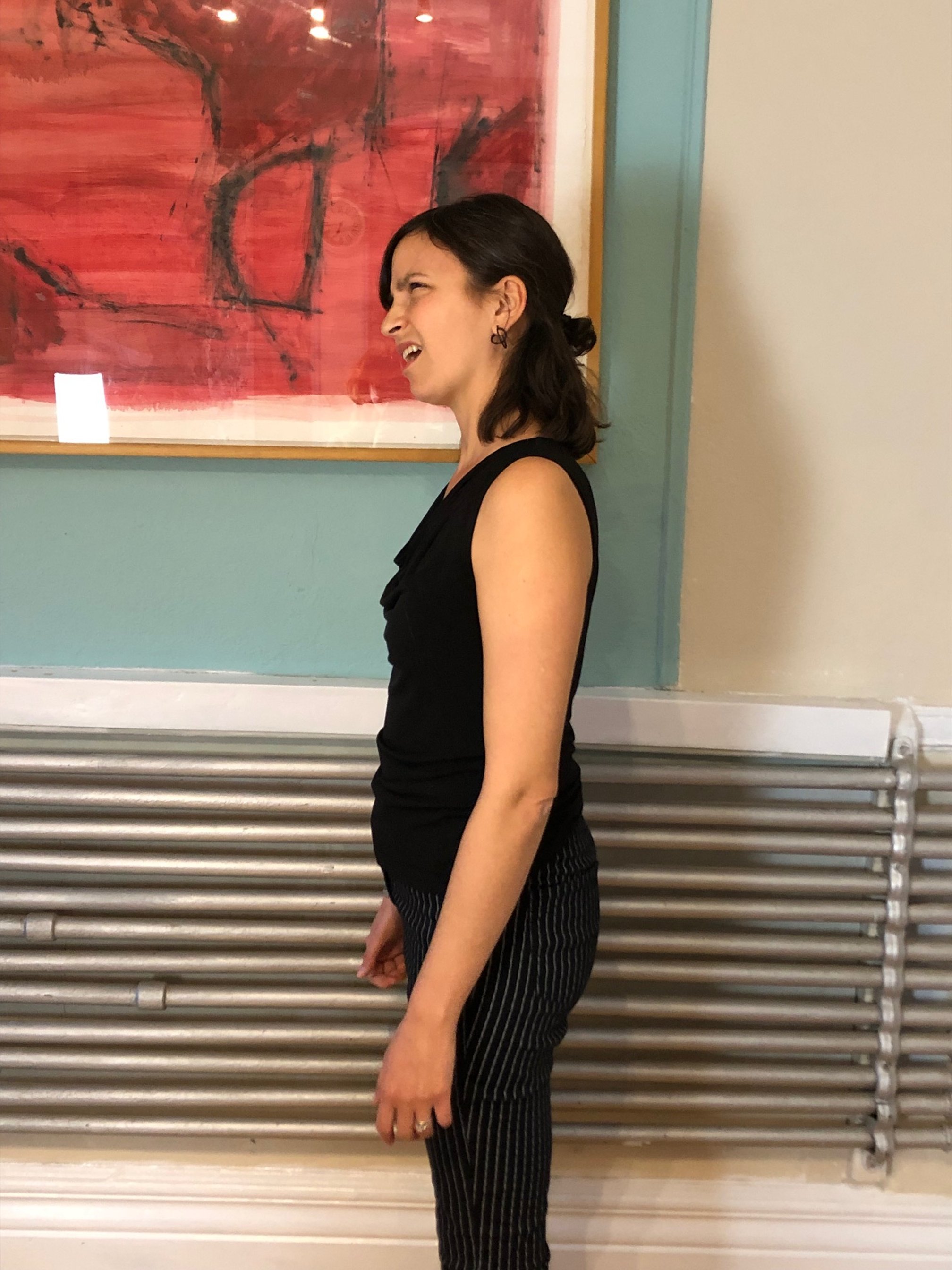Why Good Posture Feels Like Slouching
/Have you ever come inside on a cold day and washed your hands in water that was luke-warm, but to your chilled hands, felt uncomfortably hot?
Changing long-held physical habits like your posture can be similar. More often than not, when someone is standing straighter, they feel like they're either slouching or leaning forward...
(Looks like the photo above on the left/top. Feels like the one on the right/bottom.)
But this feeling doesn't reflect reality.
When I tell my clients they are actually standing straighter, they usually don't believe me, but then they take a look in the mirror, or we take a photo and they can plainly see that they are, in fact, not slouching or leaning.
In group classes, there's the fun of not only experiencing this kinesthetic confusion yourself, but observing that it's not just you who's confused. You can plainly see that your fellow participants are standing straight even though they are sure they must be slouching or tipping forward.
So how could you feel like you're slouching or leaning when you're not?
I try not to use too many technical terms when I talk about posture, but I'll use one this time -- and it's a fun one. The reason for this disconnect between what you see and what you sense has to do with your proprioception.
Proprioception is a very concrete (ie. not supernatural) sixth sense that simply means sensing yourself. It's not your sense of touch, but rather your sense of where you are in space -- the space your body parts take up and where they are in relation to one another. It also has to do with your sense of balance and how much effort you need to do things.
It's how you can easily touch the tip of your nose with your eyes closed or how you know where your hand is when reaching behind your back -- and it's the sense that gets impaired if you've a had a few glasses of wine.
Odds are that your proprioception works just fine, but that it's become misguided -- like a compass that's not pointing north. It's functioning, but it keeps guiding you in the wrong direction every time you try to correct your posture because your brain is simply used to the habits you've developed.
If you're constantly overcorrecting your posture by lifting up your chest, you might have gotten used to this way of standing and it might be the sensation that you associate with standing straight -- but it's not actually straight, it's leaning back -- which is why standing straight feels like slouching forward.
Practice the new way and standing straight and it will eventually start to feel like standing straight.
Many postural issues are improved by working on your proprioception. For example, most people move their head and neck as if they are glued together, but your neck likely goes up much higher than you think it does (all the way up between your ears).
Our perception of the size and shape of the head, location of the hip and knee joints, and awareness of our shoulder blades also have a significant impact on our posture and how we move.
Proprioception just is a fancier and more precise way to talk about body awareness and it's something that can be refined and improved.
Many people who give up on having better posture or who blame it on genetics may not realize that honing their sense of proprioception is the key to improving.
Before I learned that, I thought that the problem was me, that I'd tried and failed. I wasn't even looking for a solution because I didn't realize that there was more I could do to improve. I didn't know I had a sense of proprioception. Like most people, I thought my posture had to do with how I held my shoulders.
Fortunately, an Alexander Technique class was a requirement for my major in college -- the solution found me! And the side effect was that I stood straighter and stopped slouching.
So, why does straighter often feel like slouching at first? If you are tilting back and don't realize it (as most people are) standing straight will be forward of where your body is usually settling.
The forward feeling is only relative to the habit of leaning back...just like the warm water on cold hands feeling hot, but just like the water eventually feels cooler as your hands warm up, you get use to standing, sitting, and moving with better alignment -- so you're actually training your brain -- via your body -- to give you correct information about your posture.



